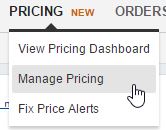
If you are selling products through Amazon FBA you are most likely familiar with pricing, automated repricers, and the crazy race to the bottom that is often wiping out profits for everyone involved. Automated repricers are used to by sellers to maintain a presence in the “Buy Box” and to have sales – even when a competitor is trying to outbid everyone else.
While repricers and repricing are great tools to keep your sales going, they are also a pain the rear because if a bidding war gets started the profits usually go out the window – for everyone involved. Some people participate in these price wars at all cost – especially when they want to hurt a competitor hoping that the other guy blinks first (gives up) or runs out stock allowing prices to return to normal levels.
Who does start a price war?
It’s not always the newbies that start a price war, but they definitely have their fair share of this price action that they are responsible for. A newbie FBA seller does not yet have any type of account reputation and to get reviews and ratings he or she needs sales. That often means that they have to work with lower profits because they have to fight for the Buy Box by lowering their prices. Existing sellers on the same listing might have repricers in place to stay “competitive” and so the price of the product starts falling and falling.
As mentioned it is not just the newbies that start a price war, but also established FBA sellers. Some might be new to selling on a certain listing and they want part of the Buy Box or they simply are willing to give up some profits to increase turn over and cash-flow. A 3rd variant of the price war could be wrongly configured repricing software and the race to the bottom kicks off with almost no human interaction.
What do you do when a price war has started on a product listing you are selling on?
Well, you can participate in the race to the bottom and throw some (or all) of your profits out the window. It really depends on your situation. If this specific product is a major part of your sales foundation you might have no choice and follow the price action – especially if you need the money coming from these sales to pay your bills and to source new products. You could also simply wait out the price war and concentrate on other products, sourcing, or whatever else you are working on with your business.
What should you do when a price war has started?
You should definitely keep an eye on the product and the pricing. It is not unheard off that other sellers bought the entire stock of competitors because the price war drove levels so low that products were sold at major losses. However, it is more important to keep an eye on the pricing to see if prices recover at all. Sometimes a price war could mean permanently lower prices and depending on how many units you have in stock it could really hurt you. Depending the number of units in stock it might make sense to partially sell them during the price war to reduce your risk and exposure even if it means less profit. Then you could use those funds and concentrate on other products and really wait out the price war until the product prices recovers and becomes stable again. It really can make more sense to put your money to work somewhere else and increase the turnover and cash-flow than waiting it out.
If you are an active participant in price wars …
If you are an active participator in price wars think about your intention and the overall impact to the price ecosystem. Sure, you want to protect your rankings and sales, but at what price? I know it takes more than one person to be reasonable and to understand that the dynamic of the situation could be hurtful to your business (a lot), but it has to start somewhere. I am not suggesting price fixing or stuff like that, but when you notice price lowering action on a product that you are selling, think twice before heading down that path. Also think about how much you lower the price yourself and what timer intervals because large “price drops” could lead to a long stretch of losses. Why? If you reprice the price dramatically lower it could cause panic with competitors who do not have pockets deep enough to wait out a price war and they start following the price action to protect their investment or reduce the risk of dramatic losses. Sure, you might get rid of a competitor that way, but really think about the long-term impact a much lower price will have to your own bottom line.
A newbie competitor with a lack of business skill will put himself or herself out of business quickly without “your help”. The basic lack of understanding what it means to run a profitable business with all the bits and pieces will put an end to the drama quickly. While repricing can be a helpful tool, it will also hurt your business long-term if you do not manage this tool correctly. What if your competitor has deeper pockets than you? How long are you able to sustain dramatically reduced profits or even losses?